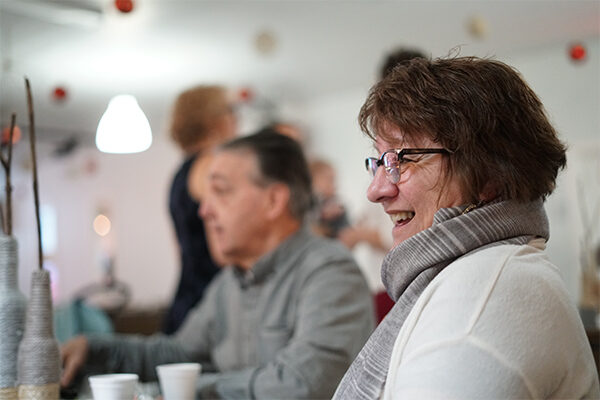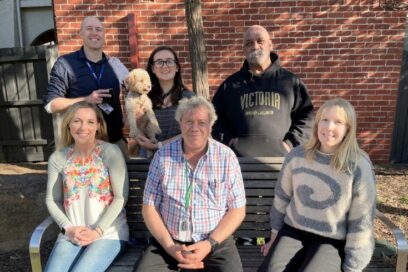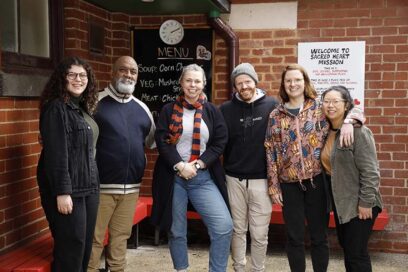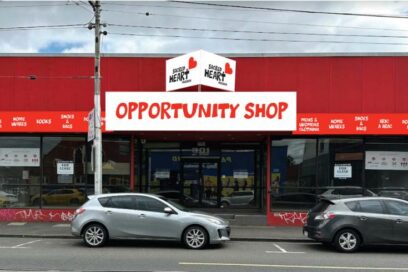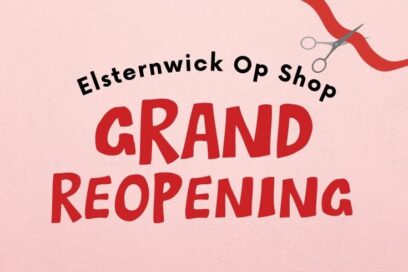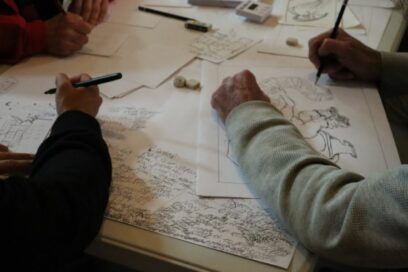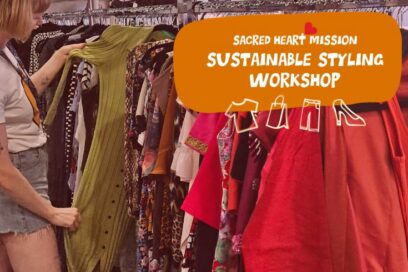Giving a unique insight into the lives of people trapped in the cycle of homelessness, a study which included three years of interviews with people details how their lives have dramatically benefitted from getting housed and keeping that home with three-years of intensive support.
Coinciding with this year’s Homelessness Week theme ‘everybody needs a home’, SHM has released a Qualitative Study of Experiences and Perspectives of J2SI Study Participants by Swinburne Associate Professor Monica Thielking proving its Journey to Social Inclusion program is a proven integrated approach to solving chronic homelessness.
Monica explains she interviewed a randomised control group and J2SI participants from the program’s Phase Two, which ran from 2016-19, to gain an in-depth understanding about the systemic barriers people face when trying to integrate back into society.
“Often, they had to cope with a multitude of negative factors present in the housing that they were allocated by homelessness agencies, such as neighbouring residents’ or housemates’ substance use,” Monica says.
“The majority of J2SI participants spoke positively about the impact that the J2SI program had on their lives, with seven out of 10 reporting they had secured permanent housing and felt supported by case managers to prioritise their particular needs.
“When people achieved positive improvements in relation to their mental health, substance use and employment, participants said having the safety and stability of a permanent house was the main reason they could rebuild their lives.”
A majority of people in Monica’s study spoke openly about needing more than just a ‘roof over one’s head’ but an actual home, and also praised their case managers who provided intensive support and advocated for them during times of vulnerability.
“The J2SI program improved the quality of participants’ lives in several tangible ways by assisting them to meet their everyday survival needs,” Monica says.
“In many cases, this meant help for people to finally obtain safe, stable and appropriate housing as well as supporting them to manage complex health and social needs that had often gone unaddressed.”
Throughout the interviews, Monica says the participants’ recurring answers expressed how they wanted choice about a safe, accessible place to call their own and for their homes to be adequately furnished and close to services as well as public transport.
“An integral component of the J2SI program is being available for people who experience chronic homelessness and putting the individual’s needs at the centre of service provision,” Monica says.
“The report highlights a need for homelessness service providers and the service system more generally to provide a streamlined, integrated, client-centred and quality service that anchors individuals in safe, secure and appropriate housing, which the J2SI program has been successfully doing over several years.”
Monica says the groundbreaking J2SI model could be replicated on a larger scale across Australia and end the homelessness problem.
“With further investment and refinement of the model, J2SI has the potential to support people throughout Australia to exit homelessness and to build meaningful lives in safe, stable accommodation,” Monica says.
Sacred Heart Mission shares this vision and learnings will be used to improve the program and enable scaling up of J2SI nationally to support people out of homelessness through the J2SI Evaluation and Learning Centre (ELC).
The report complements and contextualises findings presented in the quantitative final report of the J2SI evaluation titled: Chronic Homelessness in Melbourne: Third-Year Outcomes of Journey to Social Inclusion.
Note to media: A collection of quotes and anecdotes is listed below for you to use in your story, but you can find the full J2SI reports here.
- “Well, accommodation. I have got steady accommodation. The (J2SI case manager) got me a nice place and I like it. That’s the biggest advantage I’ve had.
- I’ve been there nearly three years. If you know where you’re gonna lay your head every night, where you’re gonna get a feed from, it does take a lot of stress out of you. It takes a lot of stress out of your life.” – J2SI Phase Two participant
- “I actually had somebody that was an advocate for myself, rather than trying to have to do everything myself. I’d be back on the streets if that was the case.” – J2SI Phase Two participant
- “J2SI have helped me get to all my [outreach] appointments and my doctors, my psychiatrists, places like here, and generally just try and keep me involved in society.” – J2SI Phase Two participant.
- “I’d be lost without J2SI because like I said, the – I had no support network after rehab and that – it’s turned out that J2SI is my support network.” -J2SI Phase 2 participant
- “If they are homeless and needed help, to get in contact with them (J2SI), because they’re really good. They’ll be able to help you, so it’d be right, from housing to medical, to just getting you help for you to get to appointments…so there is always a duty worker to talk to. If they can get accommodation for you, they will work with you to find something. But just be honest and open, you will get the services.” – J2SI Phase Two participant.
- “Anyone who works in this environment knows that by the time people are sleeping rough it wasn’t a bad week that brought them to that point. There are a whole lot of things that have happened for a long period of time. They’re not going to be remedied with a three-month intervention of one hour a week.” – J2SI Intensive Case Manager.
Background:
The Qualitative Study of Experiences and Perspectives of J2SI Study Participants was prepared by Monica Thielking, a registered psychologist, qualified youth worker and Chair of the Department of Psychological Sciences at Swinburne University.
The full report can be downloaded here, as well as the J2SI Phase Two Research Study and snapshot.
Following on from Phase Two, J2SI Phase Three is being implemented thanks to Victoria’s first Social Impact Investment with the Victorian Government to support 180 people in Melbourne from August 2018.
ENDS
CONTACT
Holly Cooper
Communication and Advocacy Manager
Email: hcooper@sacredheartmission.org
Phone: 0424 137 763

